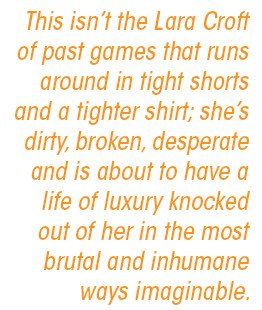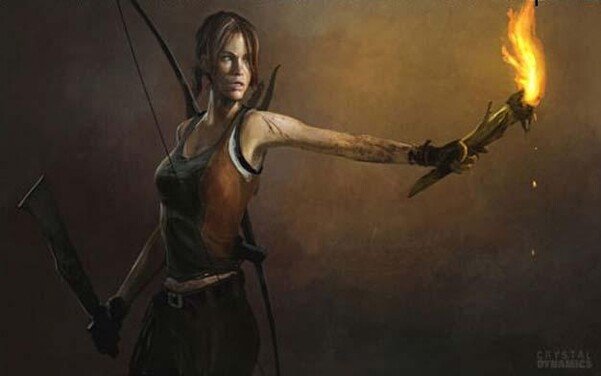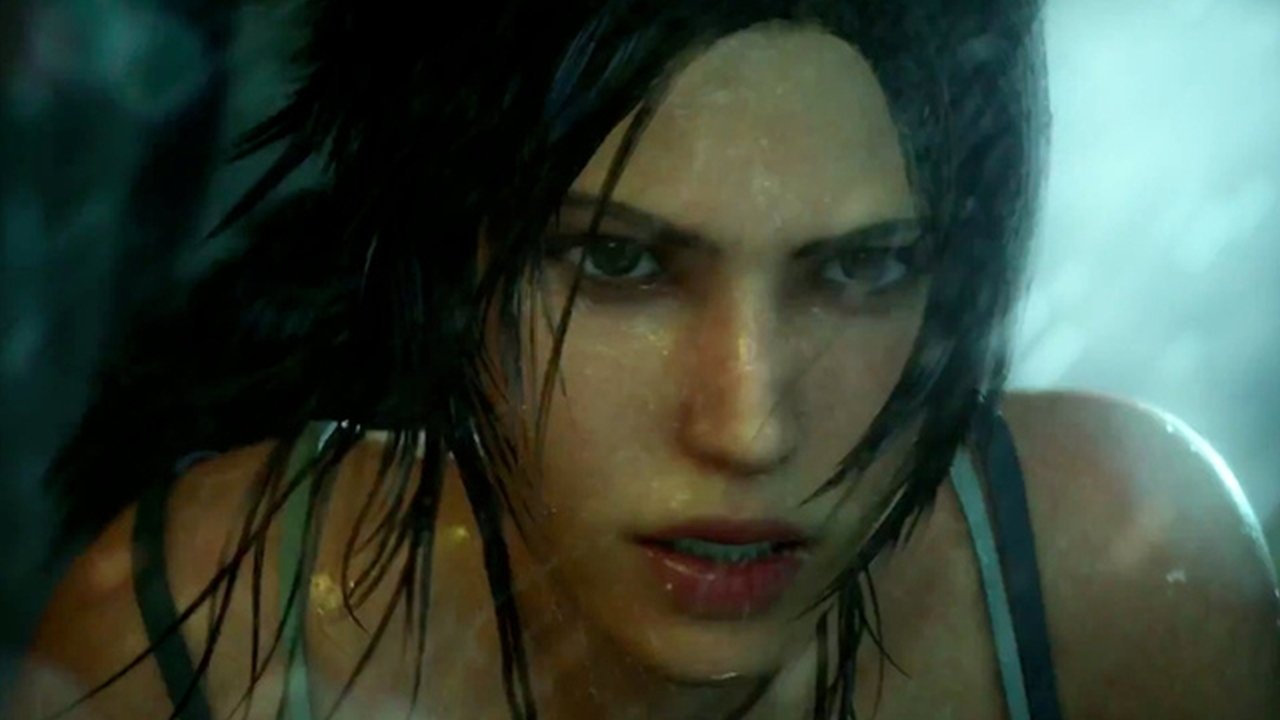Not so long ago there was an internet brouhaha that ran the usual course these internet things do.
It got blown out of all proportion to what was actually being discussed and the hostility of the argument became far more important than the argument itself. The big argument arose when trailers for the new Tomb Raider reboot showed the new, younger Lara Croft in a compromising situation. She was on an island with hostile pirates and one of them had clearly taken a sexual interest in her, not the kind that requires consent.
What followed was the expected firestorm as everyone threw in their two cents about the sexist approach this new story has taken, robbing Lara Croft of the power normally associated with her, and turning her into a helpless girl once again at the mercy of men. It was, some speculated, just another example men messing up a story about a woman.
Except of course, now we know it’s not.
At the San Diego Comic Con it was announced that Rhianna Pratchett, who also wrote for female characters in games like Heavenly Sword and Mirror’s Edge, had been working on Tomb Raider with Crystal Dynamics since early in the reboot’s inception. Genetically, it’s already impossible for this controversy to be about a man with misogynistic tendencies de-empowering Lara Croft out of spite since the writer is a woman.
 So what does that do to the arguments now? If the assumption was that the typical “geek club” of a male dominated industry was responsible, that Yet Another Repressive Patriarchal Male was ignorantly objectifying women, then the entire argument is null and void. A woman wrote it, end of story. Rhianna Pratchett herself has set a pretty good precedent for writing strong female characters. Noriko of Heavenly Sword fame was really guilty of only the lightest, male-oriented fan service with an outfit that showed off some leg. Other than that, she was a wounded, conflicted character that pursued an honorable path regardless of the personal cost to herself. Not once was she ever portrayed as a “princess” in need of rescue by a man. The same goes for Faith, the Asian messenger turned revolutionary that fights a system so oppressive that digital information is no longer secure and couriers come back into fashion. In each case, Pratchett crafted a character that had massive personal stakes in the ongoing conflict, characters that had interests far greater than finding a man to complete them. Lara Croft—who, it should be noted, was also created by a man—has become a symbol for strong, empowered female characters. So far, the most visible aspect of Pratchett and Crystal Dynamic’s new Lara Croft is a de-emphasis of her eye-candy aspects. But there also changes to her character hinted at, begging the question, “How will she change?” This isn’t the Lara Croft of past games that runs around in tight shorts and a tighter shirt; she’s dirty, broken, desperate and is about to have a life of luxury knocked out of her in the most brutal and inhumane ways imaginable.
So what does that do to the arguments now? If the assumption was that the typical “geek club” of a male dominated industry was responsible, that Yet Another Repressive Patriarchal Male was ignorantly objectifying women, then the entire argument is null and void. A woman wrote it, end of story. Rhianna Pratchett herself has set a pretty good precedent for writing strong female characters. Noriko of Heavenly Sword fame was really guilty of only the lightest, male-oriented fan service with an outfit that showed off some leg. Other than that, she was a wounded, conflicted character that pursued an honorable path regardless of the personal cost to herself. Not once was she ever portrayed as a “princess” in need of rescue by a man. The same goes for Faith, the Asian messenger turned revolutionary that fights a system so oppressive that digital information is no longer secure and couriers come back into fashion. In each case, Pratchett crafted a character that had massive personal stakes in the ongoing conflict, characters that had interests far greater than finding a man to complete them. Lara Croft—who, it should be noted, was also created by a man—has become a symbol for strong, empowered female characters. So far, the most visible aspect of Pratchett and Crystal Dynamic’s new Lara Croft is a de-emphasis of her eye-candy aspects. But there also changes to her character hinted at, begging the question, “How will she change?” This isn’t the Lara Croft of past games that runs around in tight shorts and a tighter shirt; she’s dirty, broken, desperate and is about to have a life of luxury knocked out of her in the most brutal and inhumane ways imaginable.
So if Rhianna Pratchett is willing to put Lara Croft into a situation where she is—and this is more implied than actually executed—sexually accosted because a man views her as an object rather than as a person, does that mean Rhianna Pratchett herself must hate women? Are we at a stage of Political Correctness that is so sensitive that even acknowledging the fact that sexual abuse happens is forbidden because all media must portray the world as a happy place where no wrong ever occurs? Can stories that have elements of darkness ONLY be celebrating that darkness? Could it possibly be that despite the fact that Rhianna Pratchett is a woman, she is willing to craft story in which terrible things happen to a woman because it serves some purpose besides sexual humiliation?
 I don’t think that any rationale human being is going to argue that sexual assault is a good thing. It’s not, it’s a horrible thing that has massive, often tragic repercussions. But it is also a fact of life from which—like war—certain important truths can emerge that should be discussed and remembered. In 1988, Jodie Foster took on the role of Sarah Tobias in The Accused. She portrayed a woman that was raped by a gang of men and subsequently took them—and the men that cheered them on—to trial. It won Foster an Oscar for best actress and the film has gone on to be a cautionary tale about power, the abuse of power and the nature of sexual assault and harassment.
I don’t think that any rationale human being is going to argue that sexual assault is a good thing. It’s not, it’s a horrible thing that has massive, often tragic repercussions. But it is also a fact of life from which—like war—certain important truths can emerge that should be discussed and remembered. In 1988, Jodie Foster took on the role of Sarah Tobias in The Accused. She portrayed a woman that was raped by a gang of men and subsequently took them—and the men that cheered them on—to trial. It won Foster an Oscar for best actress and the film has gone on to be a cautionary tale about power, the abuse of power and the nature of sexual assault and harassment.
In today’s gaming climate, because of the fact that it features a women as a victim, it would never get made, despite the fact that her victimization is only part of the story. I don’t know if it’s sensible, or even healthy, to encourage our various media to pretend evil doesn’t exist. That’s the best way to let it sneak in and start winning.




